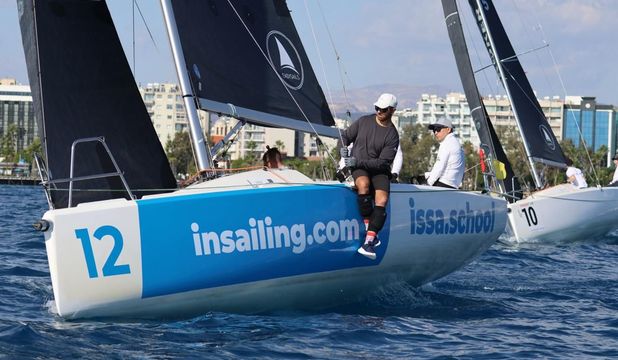Sunday
January 14, 2024
Friday
January 19, 2024
Yacht Crew ISSA
Duration
Total days:6Course days: 5
Team level
Beginners
Activity level
Moderate
Event Language
Russian, English

About event
Start:Phuket, Thailand
Finish:Phuket, Thailand
Yacht Crew ISSA
- Theory of sails and physical fundamentals of navigation;
- Classification of vessels;
- Yacht structure, knowledge of the main parts and their purpose (spar, rigging);
- Engine operation, checking the engine before starting, switching on, switching off, correct operation of the cooling system, troubleshooting;
- Setting, adjusting and retracting sails;
- Knowledge of sailing courses, sail maneuvers, sail maneuvering, control of lines and halyards, reefing;
- Use of ship's appliances, kitchen equipment, toilets, showers;
- Filling water and fuel tanks;
- Working with mooring ends, ropes, ability to join two ends with equal and different diameters, coiling the end into a coil, use of winches;
- Knowledge of knots - arbor knot, fishing knot, wrist knot, figure eight, ducking, mooring fastening, etc.;
- Knowledge of mooring methods, correct handling of moorings: throwing, receiving, giving, fastening;
- Handling cranes, knowledge of knots for their fastening;
- Anchoring, types of anchors and peculiarities of their use, anchor winch handling;
- Control of inflatable boat (dinghy, ace), outboard motor and fuel, safety measures, securing and removing from the deck, use of oars;
- Safety on the boat: moving on board, necessary rescue equipment on the boat, fire safety, personal rescue equipment, first aid kit, how to signal distress, basic rules in case of fire;
- Assisting the skipper: observing the terrain, communicating information about the direction of the yacht, the direction to objects, knowledge of the main lights of his own and surrounding boats at night, keeping the logbook;
- Ability to maintain the yacht's course at the helm.
At the end of the course, the International Sailing Logbook is kept for the cadet.
After successful passing the exam you will receive an International Yacht Crew ISSA certificate, cost 80 euros.


Yacht Crew ISSA
January 14, 2024 — January 19, 2024from €520 / 6 days / 1pers.
Events schedule
- Jan 14, 2024
5 дней теория и практика
Location
Обучение проходит на Пхукете, Тайланд






No comments, be the first one!